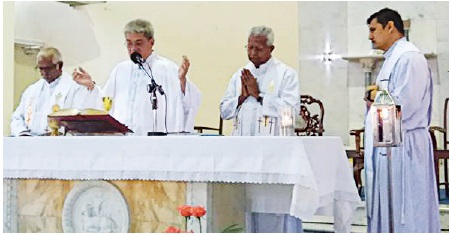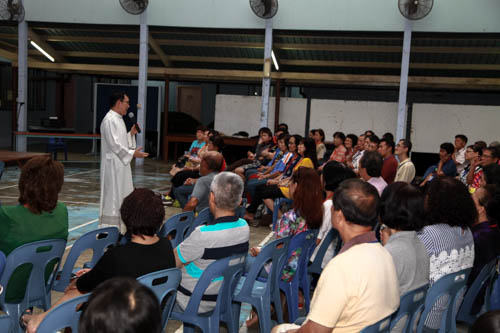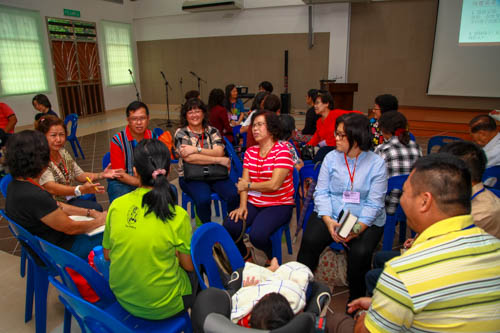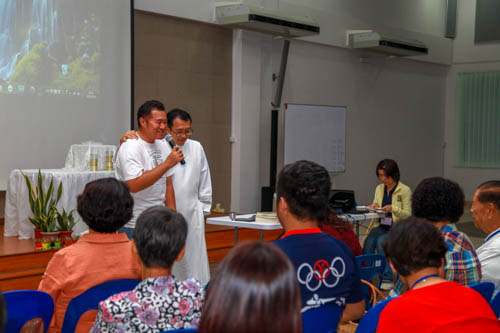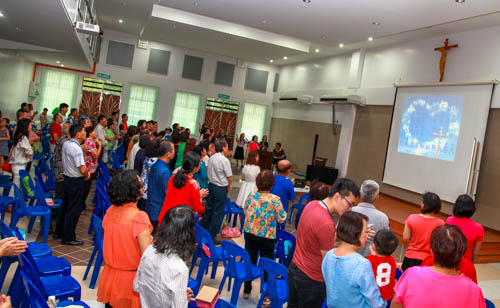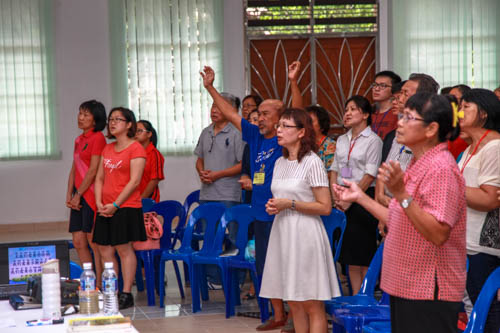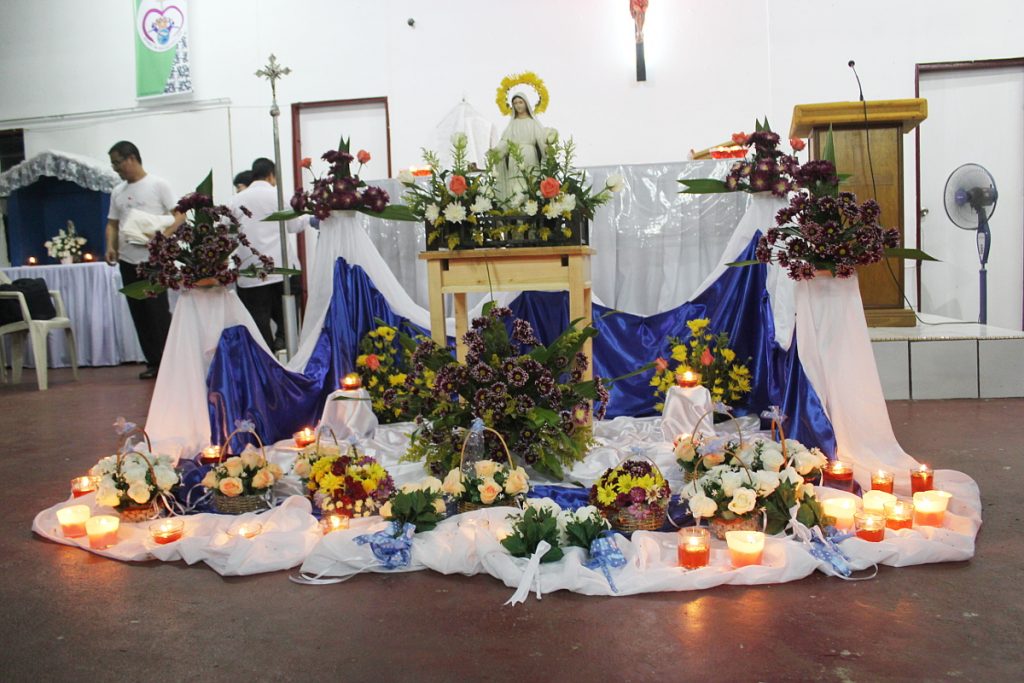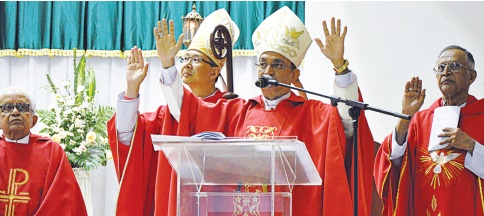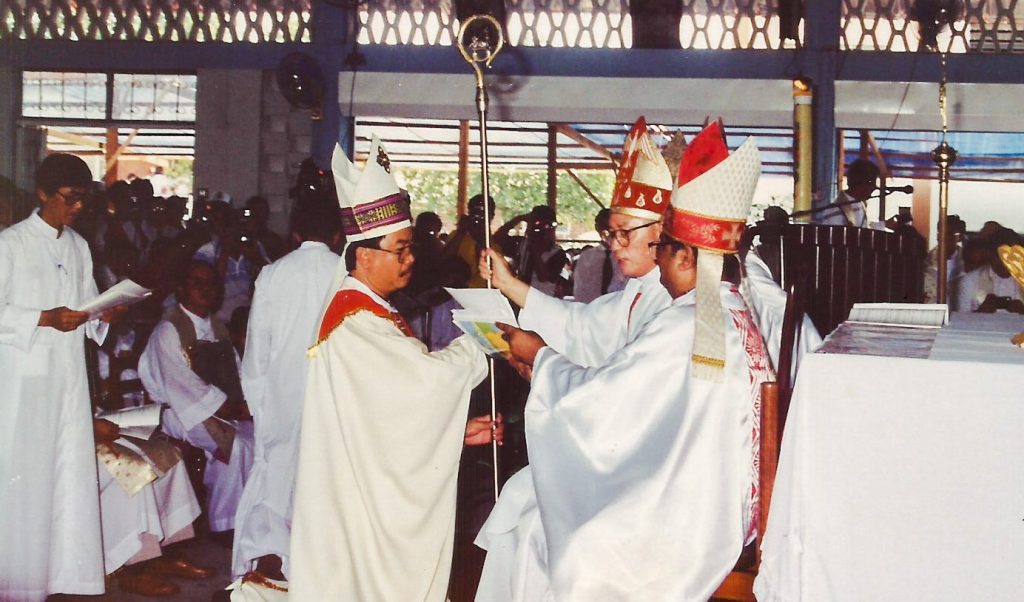MEMBAKUT : Komisi Komunikasi Sosial (KOMSOS) dengan kerjasama Pelayanan Liturgi Sabda Kanak-kanak (LSKK) Paroki St. Patrick Membakut telah menganjurkan Seminar Kesedaran Menjadi Ejen Komunikasi Sosial. Seminar yang diadakan pada 26 Ogos 2017 ini bertempat di dewan gereja St. Patrick Membakut.
Disertai oleh seramai 92 orang umat yang terdiri daripada orang dewasa dan kanak-kanak. Seminar ini mempunyai tiga sesi utama. Ketiga-tiga sesi ini terbahagi kepada dua iaitu bahagian dewasa dan kanak-kanak 12 tahun kebawah.
Seminar dimulakan dengan doa pembukaan pada jam 8 pagi. Sesi pertama bertajuk “Gereja Katolik dan Komunikasi Sosial” disampaikan oleh Sr. Laura Angie DSP, dari Keuskupan Agung Kota Kinabalu. Didalam sesi ini, peserta diperkenalkan secara terperinci tentang sejarah dan usaha-usaha gereja Katolik yang menjadi peneraju utama didalam menjadikan bidang komunikasi sosial sebagai satu cara penginjilan dan pewartaan kabar gembira pada zaman moden ini.








Dalam sesi kedua, peserta diajak untuk mendalami pesanan Paus Fransiskus di dalam tema “Jangan takut. Aku bersertamu. (Yesaya 43:5) Mengkomunikasikan Harapan Dan Kepercayaan Pada Masa Kini.” Tema bersempena dengan Hari Komunikasi Sosial Sedunia ke 51 pada tahun ini. Sesi kedua ini disampaikan oleh saudara John Liansin, pengerusi KOMSOS Keuskupan Keningau. “Melalui tema ini, Paus Fransiskus menyampaikan hasratnya untuk memanggil semua umat katolik pada zaman ini untuk menjadi ejen-ejen komunikasi sosial yang dapat menyebarkan harapan dan kepercayaan terhadap gereja kepada orang lain melalui media-media komunikasi.” Jelas beliau. Menurutnya lagi, sebagai seorang umat Katolik, haruslah berani bertanggungjjawab dalam membawa kebenaran kepada masyrakat yang semakin lama semakin kehilangan identiti kerana ditenggelami dengan kemajuan dunia.
Dalam sesi ketiga, peserta dewasa berpeluang mengasah bakat dan menambah pengetahuan melalui kumpulan bengkel yang dibahagikan mengikut pelayanan pastoral KOMSOS. Bengkel yang dikendalikan oleh ahli KOMSOS ini terdiri daripada bengkel fotografi, bengkel media grafik dan media sosial, bengkel kejuruacaraan, bengkel penulisan berita dan bengkel khas ibu bapa.
Setelah itu, peserta kemudiannya diberi peluang mengongsikan pengalaman serta pengetahuan baru yang mereka terima disepanjang seminar tersebut.

“Sebagai seorang Katolik, kita tidak seharusnya takut kepada masalah dan cabaran, terutama sekali kepada kaum belia yang masih bertenaga dan aktif. Masalah pada zaman sekarang memang banyak berbanding pada masa lalu tetapi sebagai seorang Katolik, sepatutnya setiap usaha menempuhi cabaran harus diikuti dengan doa dan kepercayaan kepada Tuhan kerana menurut beliau, Tuhan itu sama seperti seorang bapa yang sentiasa mahu memenuhi kehendak anaknya jika anak tersebut menunjukkan keberanian dan kesungguhan.” Puan Agnes Taluha
“Walaupun sudah mempunyai serba sedikit pengalaman didalam bidang kejuruacaraan tetapi bengkel yang diikuti ini telah memberi satu pandangan baru dan positif terhadap pelayanan sebagai seorang juruacara majlis mahupun sebagai seorang komentator didalam misa kudus. Setiap pengetahuan baru yang diperolehi di dalam seminar ini dan khususnya didalam bengkel-bengkel, akan saya digunakan sebaiknya untuk memperbaiki kualiti pelayan pada masa akan datang.” Elvis Lawrence
Bagi peserta kanak-kanak pula, sesi yang diadakan adalah sama seperti kategori dewasa tetapi disampaikan dengan cara dan penjelasan mudah dan ringkas iaitu melalui tayangan video. Kemudian permainan dinamik diadakan untuk membantu kanak-kanak lebih mengerti tentang menjadi ejen komunikasi yang baik. Setiap sesi dijalankan oleh ahli LSKK dengan bimbingan Sr. Laura.
Didalam sesi bengkel pula, peserta kanak-kanak ini dibahagikan kepada beberapa kumpulan dan diminta untuk mengekspresikan sendiri nilai-nilai baik dan buruk yang terkandung didalam media sosial mengikut kreativiti mereka sendiri. Menariknya, kanak-kanak ini menunjukkan kebijaksanaan mereka melalui lukisan dan kerja tangan menggunakan kertas-kertas berwarna. Malahan, salah satu daripada kumpulan bengkel ini yang diketuai oleh adik Xaviery Faye berjaya membuat satu lakonan ringkas tentang gejala positif dan negatif penggunaan media sosial masa kini.




Didalam penggulungan sesi yang telah disampaikan oleh pengerusi KOMSOS St.Patrick Membakut, saudari Patricia Bai menyatakan bahawa masyarakat kita pada zaman sekarang sangat kekurangan ejen komunikasi yang menyedari tanggungjawab mereka sebagai pembawa harapan dan kebenaran kepada orang lain. Menurutnya lagi, tugas sebagai ejen komunikasi yang baik adalah menjadi tanggungjawab automatik seorang Katolik dan bukan tanggungjawab KOMSOS sahaja. Setiap peserta yang hadir adalah merupakan seorang ahli KOMSOS, selagi mereka mengerti dan menyedari tanggungjawab mereka sebagai seorang pembawa harapan dan kebenaran. Beliau berkata, gereja, khususnya paroki St.Patrick Membakut akan bergantung sepenuhnya kepada mereka yang hadir didalam seminar ini untuk membantu orang lain sama ada didalam keluarga mahupun masyarakat untuk menyedari tanggungjawab sosial mereka juga.
Seminar tersebut telah diakhiri dengan doa penutup oleh Sr. Laura kira-kira jam 4.30 petang. –KOMSOS St.Patrick Membakut
Article reproduced from Diiocese of Keningau



